This post contains affiliate links to various products. As an Amazon Associate, I earn from qualifying purchases at no extra cost to you. To find out more, you can read my disclaimer here
Postpartum at 40 stems from Pregnancy at 40

Well in the Pregnancy at 40 blog post I wrote about how Pregnancy at age 40 is different from Pregnancy at age 30. So today, in this blog post I will be writing about How Postpartum at age 40 is different from Postpartum at age 30.
Firstly, let’s understand what Postpartum is all about.
Postpartum is the period after childbirth. Usually, it is the first six weeks after the delivery of your baby. The initial period after childbirth is very important for the new mom and her newborn. The new mom goes through not only physical changes but also emotional & mental turmoil.
Since each mom is different, each mom’s postpartum is also different. Each one’s experience is unique from the other. But we can see some common traits of postpartum.
Let’s see some symptoms of Postpartum :
Table of Contents
1. Bleeding
After giving birth to your baby, you will experience a lot of vaginal bleeding. During your whole pregnancy, you did not get periods but after delivery, you will bleed for about 6 weeks.
Thus you will need big sanitary pads. Some hospitals provide you with the pads when you are in the hospital, but you have to be sure to carry your own sanitary pads as not all hospitals will provide you with the required quantity of sanitary pads.
So don’t forget to add the sanitary pads in your Hospital Bag Checklist (Get a Free Printable Hospital Bag Checklist )
These are some that I would recommend:
Always Ultra Night Sanitary Towels with Wings
During my first Post Partum at 30, I did have bleeding for many days, but after the second delivery & during my Post Partum at 40 the bleeding lasted for many weeks.
In fact, I have also heard that the number of days/weeks increases in every next delivery. That held true at least in my case. Do let me know your experience in the comments section.
2. Hair Loss Post Partum (After Delivery of Baby)
After the baby is born, hair loss is much more pronounced than it was before or during pregnancy.
This is normal, so do not worry about it. It could take up to a year for the hair to return to its normal rate of falling out.
So, do not worry if you notice hair loss after pregnancy. It is normal, and a result of your hormones gradually readjusting to their normal pre-pregnancy state.
Hormones affect many parts of the body, including hair, nails, milk production, ovulation, sleep, moods, and menstruation.
During pregnancy, nails become notably harder. Just as there is a normal amount of hair loss after pregnancy, the fingernails will also return gradually to the way a woman had normally experienced them.
Pregnancy is a whole-body experience. After the baby is born, the mother’s body has a lot of things to do in order to return to its usual non-pregnant state.
A mother who is nursing will have a longer period of readjustment than one who is not. Still, always remember, nine and a half months up, at least the same amount of time down!
Besides hair loss after pregnancy, a woman might notice changes in her nails. Besides hair loss after pregnancy, you may have noted other changes in your hair during pregnancy. Hormones affect the whole body, including the hair.
Hair that was normally straight might suddenly begin to grow curlier than ever during pregnancy. Or, hair that was curly may get straighter and straighter as pregnancy progresses.
It can take a year for hair to readjust to its normal thickness and straight or wavy state after the baby is born.
It can be startling to see such an increase in hair loss after pregnancy. You may find clumps of hair on the drain, or in your brush. You won’t see thin patches on your head, so don’t worry about that. You are simply releasing hair that was extra during your pregnancy. This can take a year to return to normal.
One of the most interesting things about pregnancy is the way it affects a woman’s hair. During pregnancy, the hair becomes fuller. That is because the follicles don’t release hair at the same rate as when the body is not pregnant.
In my experience, during my postpartum at 30, there was the loss of hair fall, but in my postpartum, at 40 it was very startling. I could literally see my hair loss going to an extent where I could say it’s losing in heaps & bounds.
So it definitely was a very bad & depressing phase. But the hair loss is much less now than what it was just immediately after labour.
Another thing I would like to point out is that during my Pregnancy at 40, there was absolutely no hair fall to the extent that it was very visibly long, strong & shiny. Even the normal hair loss was not there. That’s the reason the hair loss during postpartum at 40 was such a shocker.
Moreover, I have always had brittle nails but during both my pregnancies my nails have been very strong & during postpartum again turned brittle & weak.
You may be able to reduce these effects with a good & healthy diet.
3. Strech Marks
The common skin change that most pregnant women experience is stretch marks. Stretch marks are separations of the outer layers of skin caused by the overstretching of underlying layers.
If you want to avoid or reduce the Strech Marks during or after pregnancy, you can try these recommendations:
- Massage vitamin E or olive oil on the abdomen areas from the start of your pregnancy. Massage it liberally over the marks after a shower
- Cocoa butter reduces stretch marks and helps to keep the skin hydrated
- Regular exercise helps to tone your muscles and keep your skin firm.
- Maintain healthy diet and drink plenty of water. Plenty of proteins and vitamin C & E foods should be included in your diet. Increase your intake of minerals such as zinc and silica to maintain healthy skin.
- To avoid stretch marks around breasts, wear a supportive maternity bra.
Homemade remedies:
- One ounce of sweet almond or jojoba oil with 7-8 drops of lavender and chamomile oils is a good homemade recipe.
- While massaging your body with body oil, add coconut and almond oil. Daily massage with Olive oil, flaxseed oil, cod liver oil or vitamin E oil after shower or before sleeping is an excellent home remedy for either preventing or treating stretch marks.
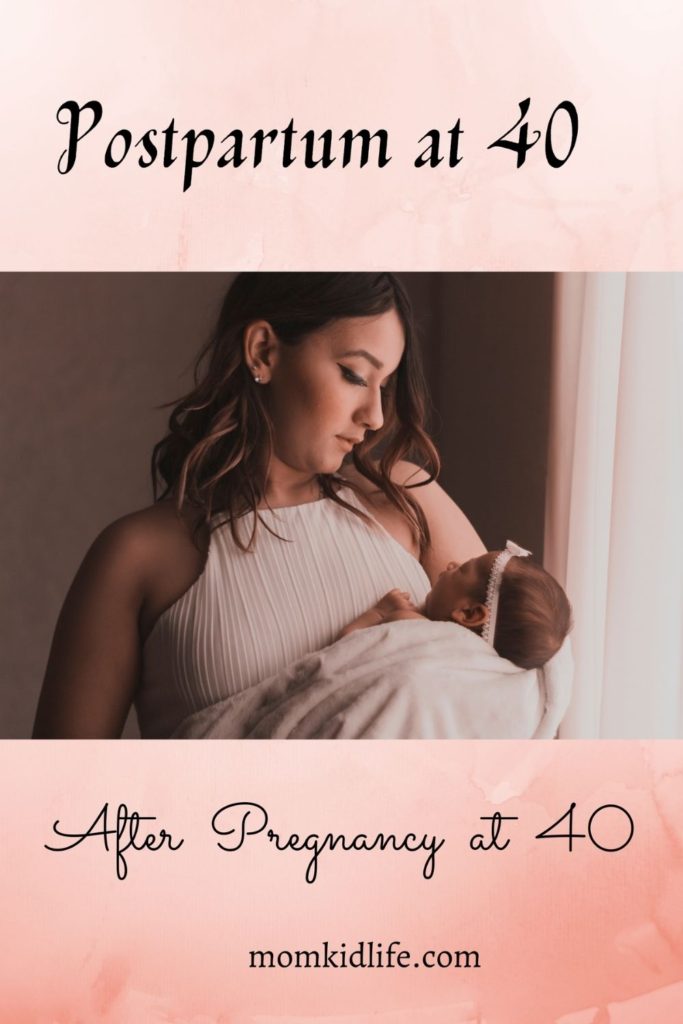
4. Uterine Infections
After the delivery, if pieces of the placenta remain in the uterus (called retained placenta), it can lead to infection.
Postpartum infection of the uterus may also be caused by an infection of the amniotic sac during labour.
Such infections need the intervention of a doctor & may be treated with antibiotics prescribed by the doctor.
5. Perineal Pain
For women who delivered vaginally, pain in the perineum (the area between the rectum and vagina) is quite common. These tender tissues may have stretched or torn during delivery, causing them to feel swollen, bruised and sore.
The discomfort should start easing with passing days. You may use cold or warm compresses for comfort.
Nowadays you also get special doughnut-shaped pillows for that extra comfort.
If your doctor or midwife permits you may do some muscle strengthening exercises which will also help in healing.
6. Uterus Contraction pains
During the labour, your uterus expands & afterwards tries to get back to its original size. These contractions of the uterus accompany by a lot of pain also know as the ‘afterpains’
These pains generally tend to be severe during breastfeeding making the process of breastfeeding to feel like a big ordeal.
Frankly speaking, I had not experienced much of these afterpains during my post-partum at 30, but after the birth of my second baby, I had these acute pains during breastfeeding & even otherwise.
7. Swollen (Engorged) & Painful Breasts
Having swollen & hard breasts a couple of days after the delivery is a very common experience. Your breasts become swollen once your milk starts coming in.
If your breasts are filled with too much milk you will experience engorgement in your breasts.
Once you start breastfeeding regularly the pain will start reducing.
If you are having difficulty in breastfeeding or if your baby is not able to latch on & suckle the milk properly, you might again start feeling the pain in your breasts as the milk is not getting an outlet.
In such a scenario you might have to express your milk either by pressing with your fingers or by using a breast pump.
It is very important that your baby gets the latch on properly. This will help you to have a painless breastfeeding experience.
Now to cite my experience, I had breast engorgement while breastfeeding my second baby after my pregnancy at 40. This was more so as my baby was having problems latching on properly.
Once she learnt to latch on properly & my milk production increased I sometimes still had pain due to increased milk production & I had to use a breast pump to express the extra milk.
That did give me relief.
But later when I had started the weaning process with my daughter, I felt sharp needle-like pain in my breasts which eventually lessened after few days of completely stopping breastfeeding.
8. Postpartum Depression
‘Baby Blues’ is another name for Postpartum Depression. It is a very common side effect of postpartum.
Giving birth to a baby involves not only physical changes but also emotional turmoil. Many new moms undergo different types of emotions & feelings which result in depression.
Now coming back to what the difference is in postpartum depression after Postpartum at 30 and Postpartum at 40.
When I gave birth to my son around the age of 30, I did not experience much depression. There was anxiety but not much depression.
But, when I gave birth to my daughter 10 years later, when I was 40, I literally experienced depression. I used to suddenly get emotional & cry. I felt bad & sad about the situation I was in.
The physical pain that I was going through made me emotionally weak too. I had never experienced such feelings before.
This depression continued for a couple of months before I got a grip on it.
Conclusion
To sum it all, the biggest difference that I felt between Postpartum at 30 & Postpartum at 40 is the depression & physical pain that I went through.
With the passage of time, the recovery path has also been fine. I had good family support during both my deliveries which helped me overcome my pain & depression.
For most new moms the postpartum symptoms will go away with the passage of time. Some might need medication & some might need counselling. Others may not need anything special & will still recover finely.
So let’s enjoy the feeling of Motherhood leaving the Post-Partum symptoms behind us.
Let us cherish our Bond with our Babies & the ethereal gift of Motherhood.
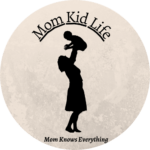
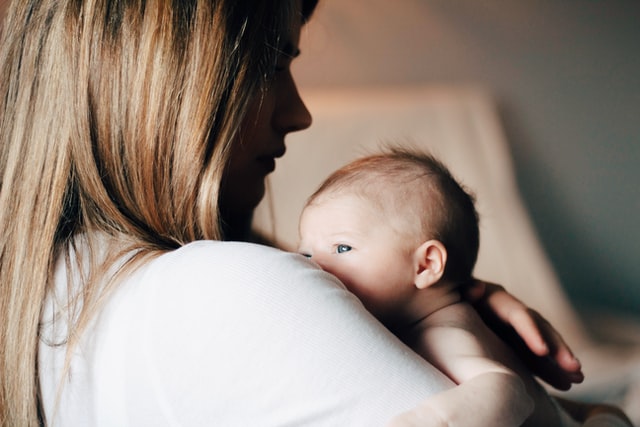
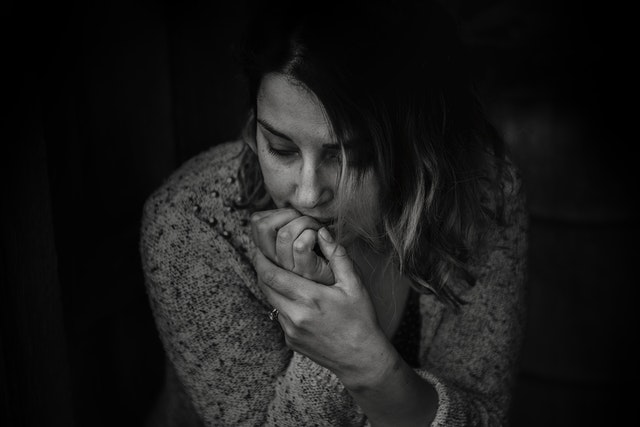
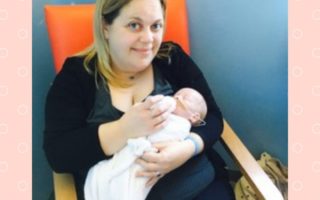

I had my first 2 kids in my 20s, next 2 in my mid 30s, and the last one right before I turned 40. HUGE differences in all the areas you mention! Thanks for this wonderful insight!
Oh wow. That’s great. You also must have experienced these vast differences in the 3 pregnancies. Thanks for your feedback.
I’m gonna just go out and say this. The changes in a woman’s body after a birth sounds so outrageous and scary. Don’t get me wrong – pregnancy and all this is great but wow. Looks like I brace myself! Yet to have kids sometime in the future. Wish me luck. Thanks for the post. It’s great to learn about stuff like this. Yikes!
Well, it can be scary & beautiful at the same time. All the Best to you for your pregnancy. I am sure you will feel it fruitful at the end of it all. Good Luck!
Indeed, pregnancy brings up so many unknowns. I a glad you have been able to reflect and write this for many others who may need a headsup in similar situation.
Oh, Thank you for such lovely words. Appreciate your feedback.
Thank you for sharing your experience and for the information. 🙂
Thanks Ashley for your feedback ????
An interesting perspective of postpartum at 30 versus 40! It’s crazy how much we go through when we give birth.
Oh yes. Thanks for your lovely feedback.
It’s so interesting the differences between having a child at 30 and having a child at 40. I never realised that hair loss would be one of the postpartum symptoms! Love to read your story.
Oh yes. I massively felt the hair loss during my postpartum after my second child was born.
Thanks for your lovely feedback
I had no idea about most of these as I don’t have a baby but it was an interesting read for one day!
Hey Thanks, Simona for your feedback.
Wow. This is such an informative post tbh. I never knew that there are advantages and disadvantages of giving birth at a particular age. I loved reading the differences between having a child at 30 and having a child at 40. I never in my wildest dreams thought that age has an effect on pregnancy. Thank you for sharing! I love your posts.
O That is so sweet Ruth. Thank you for your lovely words.
This is going to be so useful for any mum in her 40s and for the people in her life who can help out and be aware of how postpartum may be similar/different. Thanks for sharing, I don’t have any children myself but will be more mindful about what mums in my age bracket go through.
Thanks for your lovely feedback & I agree we need to be more aware of age during pregnancy.
I had my kid in my late twenties and developed postpartum depression, it was the hardest thing in my life. I would like to say what a great post, so useful for those of us in our forties.
I totally get your feeling. I never felt depressed in my life before my Postpartum depression. Luckily I am out of it.
Thank you for sharing your experience & giving your feedback.
And this is why mothers are the strongest people ever. Some of these symptoms I never knew about. I’m only 20 but this is helpful to read for the future. Great post! xx
TheQuietGirl | http://www.quieitgirlblog.com
Hey Thanks Anissa for your feedback.
This is a great article! Really interesting to compare
Postpartum & age. Relevant to me as I just finished my first postpartum year!
Thanks Ali for your feedback.
I could imagine that it’s painful going through after pregnancy. Big shoutout to you and all moms for staying strong going through such an experience.
Thank you so much for your kind words.
This is a really helpful post for women who are expecting as well as after the baby is born. This will help others feel less alone. Thank you for sharing such a personal experience.
Thank you Lauren for your lovely words.
Such an informative post, packed full of useful information. Thank you for sharing.
Thank you so much dear for your feedback.
This is a helpful post for all Moms regardless of the age. As a nurse who assisted Moms post-partum I can tell you that afterpains are also more common with second and successive births as it takes a bit more effort to get that uterus back to its normal size. Thanks for sharing!
Oh yes. Absolutely second that. It is much difficult with successive births than the first one. Thanks for your feedback.
Great post but I struggler with you calling baby blues depression. The 2 things are entirely different.
Baby blues are just the hormonal imbalanceleaving you feeling a bit blue after the baby is born.
But a depression is much more serious and don’t feel just a bit blue but can’t see any hope for the future.
As a mother and someone who has suffered depression I see the complete difference and don’t want people to think that they are the same thing.
But great post, I really did like it
I totally understand your point of view. I also underwent depression after my second pregnancy.
Appreciate your feedback. Thanks
I am not pregnant yet, just a woman expecting for a kid. Thanks for sharing the information. It’s really helpful!
I am glad you found it helpful Linda. Thank you for your feedback.
Wow….I learnt many things from this post. It’s very informative article. Really appreciate your efforts.
Thank you so much. I am glad you found the post informative 🙂